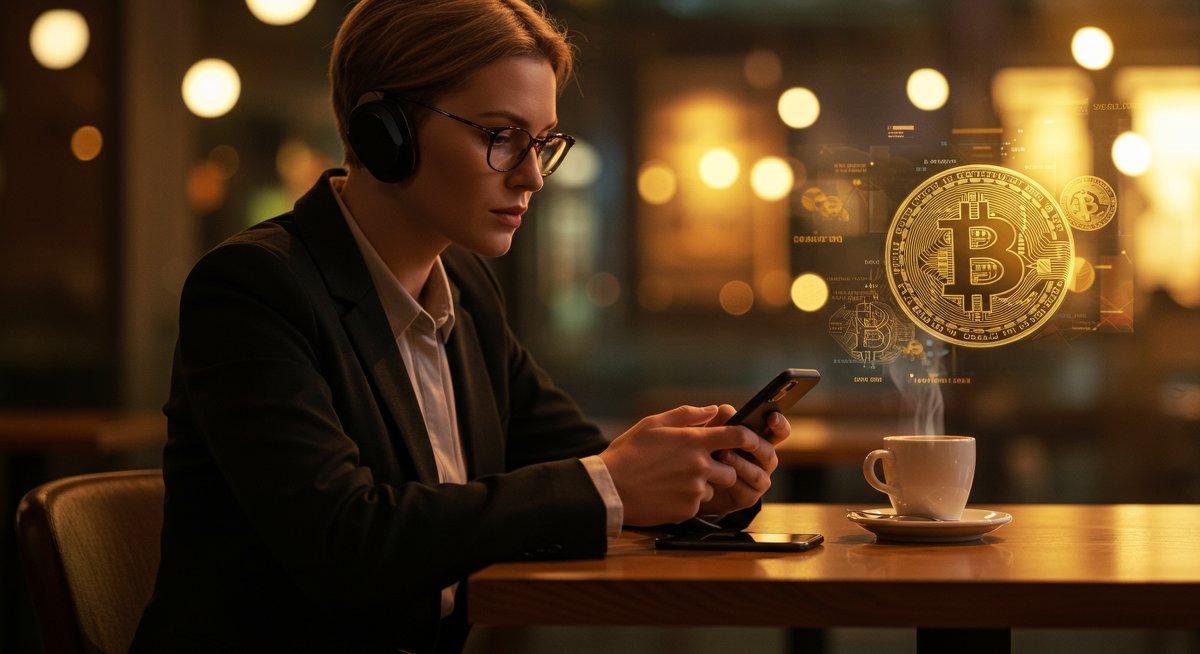
So, you're diving into the world of crypto, which is exciting. But maybe you're wary of all the Know Your Customer (KYC) requirements, the identity verification steps demanded by many exchanges. Let's be honest, it's understandable. You value your privacy, and you want to trade crypto without handing over your personal information. That's where KYC-free crypto swaps come into play. This guide will walk you through everything you need to know to swap your crypto, completely anonymously, as a beginner in 2025.
Why This Matters for New Crypto Traders
As a new international crypto trader, the idea of handing over your passport, driver's license, and utility bills can be daunting. KYC processes can feel intrusive, and time-consuming. In some regions, the very act of sharing personal data raises security and privacy concerns. But you still want to participate in the crypto market, diversify your portfolio, and take advantage of trading opportunities. This is where KYC-free swaps become incredibly valuable.
With KYC-free swaps, you can exchange your crypto assets without these hurdles, offering several key benefits, including:
- Enhanced Privacy: Your personal data remains private, reducing the risk of identity theft or data breaches.
- Faster Transactions: Without KYC, you often experience quicker transaction times.
- Global Accessibility: You can trade from almost anywhere, regardless of local regulations that might restrict access to traditional exchanges.
- Simplified Trading: You get to dive right into the core activity of crypto trading – swapping one asset for another – without the extra steps.
Getting Started: What You Need to Know
Before you leap into KYC-free swaps, here's what you'll need:
- A Cryptocurrency Wallet: This is where you'll store your crypto. Popular options include Trust Wallet, MetaMask, and Exodus. Make sure to back up your seed phrase securely.
- Crypto to Swap: Obviously, you'll need some crypto. You can acquire crypto from various sources, but ensure you have a starting amount. Remember, even small amounts can get you started. Consider starting with $100 or less to get the hang of it.
- A KYC-Free Swap Platform: We'll explore some options shortly, but these platforms act as the intermediaries to facilitate your swaps.
- A Basic Understanding of Crypto: Know the basics of blockchain, cryptocurrencies, and how transactions work. If you're entirely new, take some time to do some basic research.
Step-by-Step Trading Solution
Let's walk through a simplified example, illustrating a hypothetical swap of Bitcoin (BTC) for Ethereum (ETH):
Choose a KYC-Free Platform: Select a platform that supports both BTC and ETH swaps. Research the platform's reputation and exchange rates.
Connect Your Wallet: The platform will prompt you to connect your crypto wallet. This allows the platform to interact with your holdings.
Select the Swap Pairs: Choose Bitcoin as the 'send' currency and Ethereum as the 'receive' currency.
Enter the Amount: Specify the amount of BTC you want to swap. The platform will display the estimated amount of ETH you will receive based on the current exchange rate.
Confirm and Execute: Review the transaction details, including fees and the estimated ETH amount. If everything looks good, confirm the swap.
Wait for Confirmation: The transaction will now be processed on the blockchain. This can take a few minutes to an hour, depending on network congestion.
Receive Your ETH: Once the transaction is confirmed, the ETH will be deposited in your wallet.
Here's where it gets interesting... This entire process is designed to be as straightforward as possible, allowing you to swap your assets without revealing your personal information.
Your First $100: What to Expect
Starting with a relatively small amount, like $100, is smart. It allows you to experience the swap process without risking significant funds. What can you expect when swapping $100 worth of Bitcoin for another cryptocurrency?
Example 1: Bitcoin to Ethereum
- You swap $100 worth of Bitcoin for Ethereum.
- The current exchange rate (including fees) may mean you receive approximately $97-99 worth of Ethereum.
- Transaction fees on KYC-free platforms are typically higher than on traditional exchanges. Always compare the final amount.
Example 2: Bitcoin to a Privacy Coin
- You swap $100 worth of Bitcoin for a privacy coin like Monero (XMR).
- The exchange rate, coupled with potential slippage (the difference between the expected price and the actual price at execution), might result in receiving around $96 worth of XMR.
- You gain enhanced privacy. Note the tax implications in your local jurisdiction.
Example 3: Bitcoin to Stablecoin
- You convert $100 of Bitcoin to a stablecoin like Tether (USDT) or USD Coin (USDC).
- This swap may result in receiving approximately $98-$99 worth of stablecoins (factoring in fees).
- You protect your capital from the volatility of Bitcoin.
Common Beginner Mistakes to Avoid
New traders often make mistakes. Here’s how to avoid them:
- Falling for Scams: KYC-free platforms are appealing, but be cautious. Verify the platform's reputation. Only use trusted sources.
- Ignoring Fees: Fees can eat into your profits. Compare fees across different platforms before making a swap.
- Sending to the Wrong Address: Always double-check the wallet address before sending your crypto. Losing funds due to an incorrect address is a common mistake.
- Ignoring Volatility: Crypto prices change rapidly. Don’t put in more than you can afford to lose.

International Trading Considerations
When trading internationally, keep these things in mind:
- Regulations Vary: Crypto regulations differ by country. Research the regulations in your country. It's always best to consult a legal professional, too.
- Exchange Restrictions: Some platforms may restrict access based on your location. Always confirm that the platform serves your country.
- Language Barriers: Choose platforms that offer multilingual support, especially if English isn't your first language.
- Time Zones: Transactions are typically processed 24/7, but consider your local time zone for any support needs.
- Taxes: Remember to check your local tax regulations regarding cryptocurrency trading.
Building Your Crypto Knowledge
Never stop learning. Here's how to expand your knowledge:
- Follow Crypto News: Stay updated on market trends, regulations, and platform updates.
- Join Crypto Communities: Engage in online forums, social media groups, and local meetups to connect with other traders.
- Read Whitepapers: Dive deep into the technology behind cryptocurrencies. Whitepapers can be complex, but they explain the fundamentals.
- Experiment with Small Amounts: Trade small amounts to familiarize yourself with different cryptocurrencies and swap platforms.
Next Steps in Your Trading Journey
So, you now know the basics of KYC-free swaps and have the tools to get started. Remember:
- Start Small: Don't invest more than you can afford to lose.
- Do Your Research: Always research the platform and the cryptocurrencies you are trading.
- Stay Secure: Protect your wallets, and always use strong passwords.
- Learn Continuously: Crypto markets are always evolving; keep learning.
If you’re on this journey too, I’d love to hear how it goes for you. What challenges are you facing, and what successes are you celebrating? Share your experiences and ask any questions in the comments section below. It’s all part of the adventure.